Video: Zomegnan to respect memory of Weylandt
Giro d'Italia director to let peloton decide on stage 4 dynamic
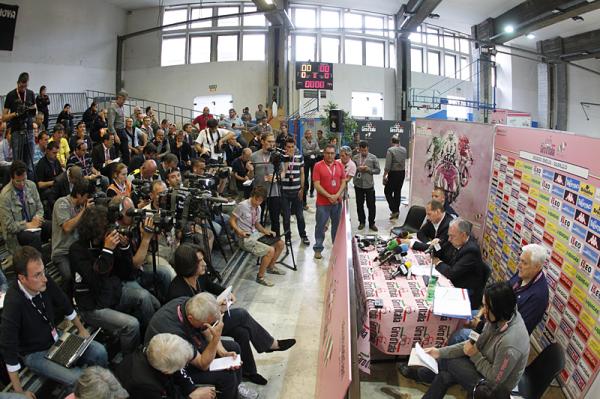
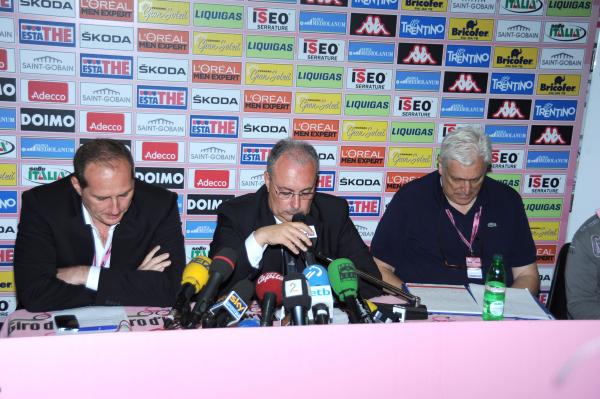
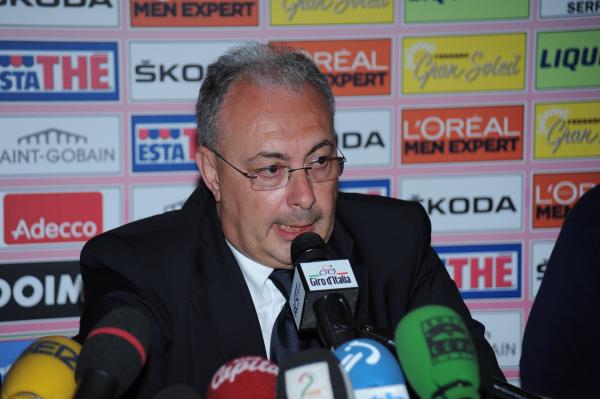
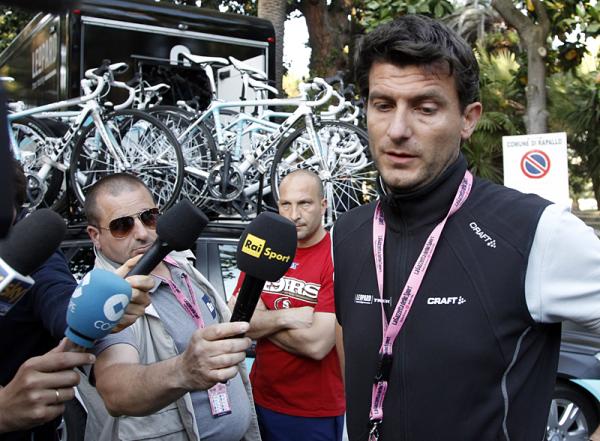
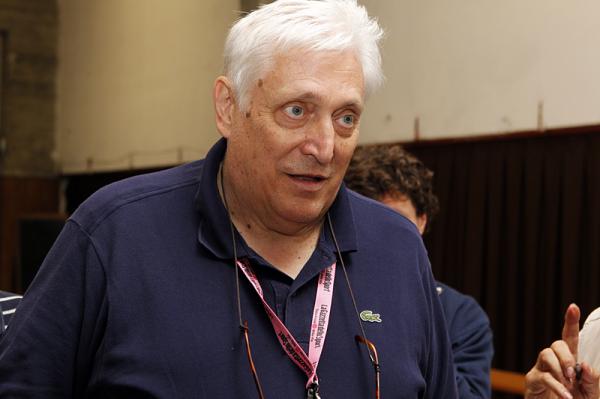
Giro d'Italia race director Angelo Zomegnan will leave it to the riders themselves to decide how best to honour the memory of Wouter Weylandt, who died after crashing on the descent of the Passo del Bocco on stage three.
Speaking at a press conference in Rapallo on Monday evening, Zomegnan explained that race organisers RCS Sport would respect whatever decision the riders took regarding the running of stage four to Livorno.
"We will leave it to the riders of Leopard Trek and to all of the other riders of the Giro d'Italia the freedom to choose how they wish to interpret tomorrow's stage," he said. "Whatever decision they take, we will respect it."
Zomegnan also outlined that the Giro would maintain a somber tone on the road to Livorno, with a minute's silence to be observed before the start. Following the conclusion of Monday's stage, the race organisers respectfully kept the post-stage presentation ceremonies to a minimum, with no music played on the podium.
At the 1995 Tour de France, race organisers were roundly criticised for continuing as normal with jersey presentations in the wake of Fabio Casartelli's death on the descent of the Col de Portet d'Aspet.
"Tomorrow morning, we will repeat what happened at Alba in honour of the memory of Pietro Ferrero," Zomegnan said, noting the Alba chocolatier and cycling enthusiast's death earlier this year. "Tomorrow afternoon, according to what happens in the stage, we will get rid of the music, cancel the festive atmosphere and keep things low key, as happened in the final 10km of today's stage."
Although Weylandt was pronounced dead on the scene, the race organisers sensitively delayed making an official announcement on the matter until the Belgian's partner, Sophie, had been informed of the tragedy.
Get The Leadout Newsletter
The latest race content, interviews, features, reviews and expert buying guides, direct to your inbox!
"We didn't want to announce the news of the death before the family informed his wife of what had happened, because she was driving home at the time and she would have found out by listening to the radio," Zomegnan said.
Zomegnan was set to travel to Milan's Malpensa airport late on Monday evening a delegation from RCS Sport to meet Sophie Weylandt on her arrival in Belgium.
RAI television was praised for not replaying images of Weylandt's crash, and Zomegnan said that there would be an inquest into his death.
"Magistrates will work to establish the dynamics of the event, and this reconstruction will take place by talking to riders close who were close to Wouter at that moment," he said.
Officials questioned RadioShack rider Manuel Cardoso, who witnessed the crash. The team's press agent Philippe Maertens confirmed to Cyclingnews that Weylandt was by himself at the time of the crash, about 50m ahead of a group containing Cardoso on the high-speed descent.
"Wouter was dropped and tried to come back in the group. He then looked behind to see if it would be better to wait for the other dropped guys," Maertens recalled Cardoso's statements. "While looking behind he hit with his left pedal or left side of his handlebars a small wall and was catapulted to the other side of the road where he hit again something."
Race doctor Giovanni Tredici, who was the first on the scene immediately after the crash, was at the Rapallo press conference to answer questions regarding the treatment the stricken Weylandt received on the roadside. He outlined that the attempted resuscitation had lasted 45 minutes, but that it was immediately apparent that the situation was very serious.
"Unfortunately the situation was already desperate at the moment in which we intervened," he said. "I was the first on the scene as I was in the car directly behind the peloton, and I think I intervened within 20 seconds, 30 at the most, just enough time to let the other riders pass."
A mobile resuscitation unit arrived within in two minutes, and the seriousness of Weylandt's condition meant that it was necessary for him to be treated immediately on the roadside.
"When the mobile resuscitation unit arrived we continued reanimation on the road as the urgency and drama of the situation required an immediate intervention," he said.
Dr. Tredici paid tribute to the resuscitation unit, and to the help of Garmin-Cervélo doctor Shannon Sovndal.

Barry Ryan was Head of Features at Cyclingnews. He has covered professional cycling since 2010, reporting from the Tour de France, Giro d’Italia and events from Argentina to Japan. His writing has appeared in The Independent, Procycling and Cycling Plus. He is the author of The Ascent: Sean Kelly, Stephen Roche and the Rise of Irish Cycling’s Golden Generation, published by Gill Books.